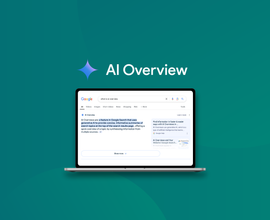What is SEO? Frequently Asked Questions About SEO
People are searching for you — SEO helps ensure your website can be found.
What is SEO and how does it work?
SEO, or search engine optimization, is the process of enhancing your website to rank well in search results. An optimized page is created with both users and search engines in mind—not only does it provide information that people are searching for, it’s designed in a way that’s easy for a search engine to understand. This ensures that it appears high on the search engine results page, or SERP, for relevant searches. The ultimate goal of SEO is organic traffic—people clicking through to your website from a SERP.
To understand SEO, it’s helpful to know how search engines work. Before a page can show up on a SERP, it must be crawled and indexed. Every search engineSearch Engine
A search engine is a website through which users can search internet content.
Learn more has its own crawlersCrawlers
A crawler is a program used by search engines to collect data from the internet.
Learn more, also known as spiders, which scour the internet and find new web pages. The pages they find are then added to the search engine’s index, its record of all the pages it has crawled.
When a person enters a query in a search bar, the search engine goes through the pages in its index, pulls the ones that are related to the query, and ranks them according to their relevance. These links are then served up to the searcher on the results page.
How do you do SEO for a website?
If a search engine can’t find or understand your website, it can’t add it to its index or surface it as a result. That’s where SEO comes in. The subset of SEO techniques aimed at helping search engines find and understand your website is often referred to as technical SEO. Technical SEO can include:
- Building an XML Sitemap – A file that lists all of your website’s pages and lays out their hierarchy.
- Using Schema Markup – Code that helps Google display certain rich results, like reviews or event information, on the SERP.
- Internal Linking – A strategy for directing users and search engines between pages of the same website.
- Meta Data – Information that describes the content on your page, like a meta description that indicates what your page is about, or alt text that describes the content of an image.
- Title Tags and Subheadings – Ways to break down and label content to make it easier for both humans and search engines to understand.
What is SEO in marketing?
Of course, SEO isn’t all about a website’s backend architecture or the way information is laid out on a page—the actual content of a webpage is also a critical component of SEO. Optimized content is high-quality, and it speaks directly to what searchers are looking for.
Let’s break that down:
- Quality – Search engines prioritize high-quality content over pages that seem spammy or light on information. Google in particular looks for content that follows its E-A-T guidelines, which pertain to a page’s Expertise, Authority, and Trustworthiness.
- Relevance – Search engines try to surface the content that is most likely to be helpful for a searcher. Optimized content is informed by the voice of the searcher. Keyword research can reveal topics that are of interest to a given audience, while also helping a marketer understand their audience’s voice. For example, if a marketer knows their audience is looking for commuter bags that will fit various electronic devices, it’s helpful to know how they’re searching for those bags. If most searchers are typing “laptop backpack” into the search bar, it’ll be more effective to design content around that keyword, rather than something with a lower search volume, like “digital bag.”
Is SEO dead?
For years, thought leaders have been proclaiming that SEO is dead. The truth is, SEO is constantly evolving and we can adapt to the way it changes. While some older techniques are now obsolete, new ones have taken their place. For example, “keywordKeyword
A keyword is what users write into a search engine when they want to find something specific.
Learn more stuffing” is no longer an effective strategy—search engines can usually tell when a page is a stitched-together assortment of keywords with no real value for a reader—but high-quality, informative content can still benefit from thoughtfully and deliberately incorporated keywords.
As search engines like Google continue to update their algorithms and release new rich result formats, marketers and SEO experts will need to continue to adapt their SEO strategies to stay at the top of the SERP.
Does SEO work anymore?
Absolutely. Industry-specific research can help companies understand their customers’ needs, making it easier to answer a searcher’s most pressing questions, or design helpful features that stand out from the competitionCompetition
Businesses generally know who their competitors are on the open market. But are they the same companies you need to fight to get the best placement for your website? Not necessarily!
Learn more. Websites like apartments.com found success on the SERP writing about certain problems specific to their audience, like moving long-distance with an infant. Others, like Skyscanner, used insights into customer behavior to blend informative content about a given service with an on-page tool that allows customers to book that service.
What is an example of SEO?
SEO success stories are the best way to understand the value of SEO. Companies often see revenue growth or increased traffic to their website after implementing SEO strategies.
What are SEO tools?
There are a range of free SEO tools that can help you get started, but businesses often need a more powerful, efficient solution, like an SEO platform. SEO platforms combine multiple tools, making it easier to aggregate and analyze data in one place, and get a holistic view of a site’s performance. Many platforms also include reporting features, so you can share actionable insights with your teammates and others in your organization.
Where can I learn SEO?
Looking to learn more? Conductor Academy is a collection of free courses taught by experts who can teach you the basics of SEO or help you level up your marketing strategies.







